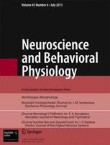
Craniocerebral trauma (CCT) is one of the leading causes of death and long-term loss of work capacity among the young population of both the Russian Federation and other countries. The development of adequate and reproducible models of CCT in laboratory animals and objective methods for assessing the extent of neurological impairments gives cause for optimism in seeking and studying new and effective neurorehabilitation approaches. The aim of the present work was to carry out a comparative cross-correlation and coherence analysis of electrocorticograms from presumptively healthy rats and animals subjected to CCT. After initial trepanning, open penetrating CCT was modeled by controlled cortical impacts applied to the motor cortex of the left hemisphere. Nichrome corticographic recording el ectrodes were implanted bilaterally in the primary and secondary motor cortex and in the primary somatosensory cortex (above the hippocampus). Electrocorticograms were recorded on days 3 and 7 after surgery in the home cage and in the resting state. Cross-correlation analysis consisted of computing the cross-correlation coefficient, the mean frequency, and the maximum span in the cross-correlation function. Mean coherence power levels for the δ, θ, α, and β rhythms were computed for pairs of leads. Unilateral traumatic damage to the motor cortex and underlying structures led to impairment to the operation of interhemisphere and intrahemisphere connections and these changes were seen not only in the impact area, but also in distant parts of the cortex on post-trauma days 3 and 7. These changes in ECoG cross-correlation and coherence parameters occurring in rats as a result of CCT were similar to those seen in patients in clinical practice, so it can be suggested that this experim ental model can be used for neurophysiological and pharmacological research.




Δεν υπάρχουν σχόλια:
Δημοσίευση σχολίου